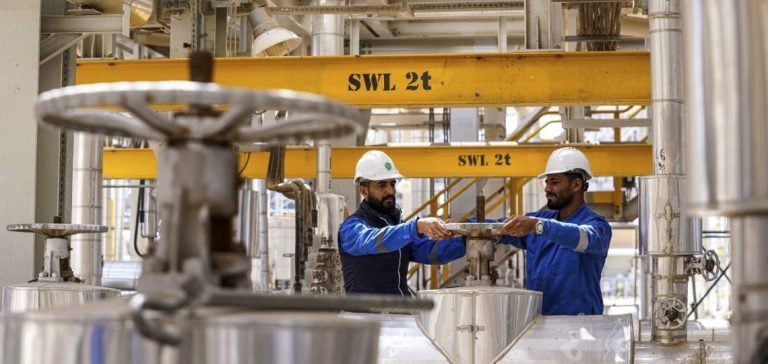Iraq, the second-largest producer in OPEC, is one of the world’s largest emitters of gas flaring, a practice that releases usable gas into the atmosphere. The Deputy Minister of Petroleum, Hamid Younes al-Zobai, stated at a conference in Washington DC that the country is seeking to attract foreign investments, particularly from American and Western firms, to develop its gas sector and reduce this polluting practice.
The Ministry of Petroleum is encouraging foreign companies to operate in Iraq, and the current government is developing investment plans in cooperation with international companies. The goal is to make Iraq’s gas sector self-sufficient within the next five years, with a particular focus on reducing flaring and increasing gas production.
Initiatives and Investments
High-level Iraqi delegations have visited the United States twice this year to meet with American government officials and private sector companies. These visits have resulted in several agreements aimed at developing gas capture projects and reducing the country’s dependence on electricity imports from Iran.
American interests in Iraq are twofold: countering China’s growing influence in Iraq’s energy sector and reducing Iraq’s reliance on Iranian electricity imports, which are subject to American sanctions waivers. Despite these efforts, concerns related to security and corruption continue to deter American companies from making substantial investments in the country.
Impact of Chinese Investments
Meanwhile, Western withdrawals from Iraq’s energy sector have strengthened China’s control. PetroChina has taken over as the operator of the West Qurna 1 project after ExxonMobil’s exit in 2023, following the sale of its 22.7% stake to Iraq’s BOC. In the latest licensing round in May, Chinese companies won 10 of the 13 available oil and gas projects, thus consolidating their presence in Iraq’s oil sector.
A World Bank report released in June showed an increase in Iraq’s oil production in 2023, but only a 1% reduction in flaring. Seven agreements were signed with American firms in April to continue reducing this practice.
Challenges and Perspectives
Despite the Iraqi government’s efforts to attract investments, challenges remain numerous. Unstable security and endemic corruption pose significant obstacles to the entry and retention of foreign investments. However, economic and governance reforms undertaken by the Finance Minister, Taif Sami, in collaboration with the American ambassador, aim to create a more favorable environment for investment.
John Calabrese, an assistant professor at American University specializing in Middle East and East Asia foreign policy, emphasizes that Chinese companies have established a sustainable and competitive presence in Iraq over the years, giving them an advantage over Western companies.
Future Perspectives
Iraq continues to navigate a complex energy landscape, seeking to balance international influences while meeting its internal energy needs. Efforts to reduce flaring and increase gas production could not only improve the environment but also strengthen Iraq’s economy by reducing its dependence on energy imports.






















